The Animal Logic Academy contains an active research unit that examines the intersection of the virtual (or digital) world and the physical world from a number of different angles to extend, augment or subvert existing film and art making practices.
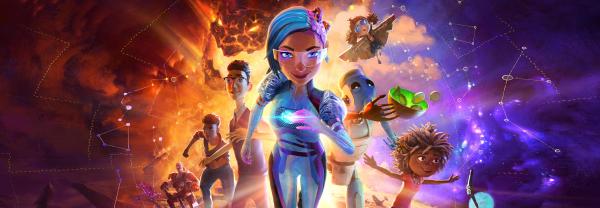
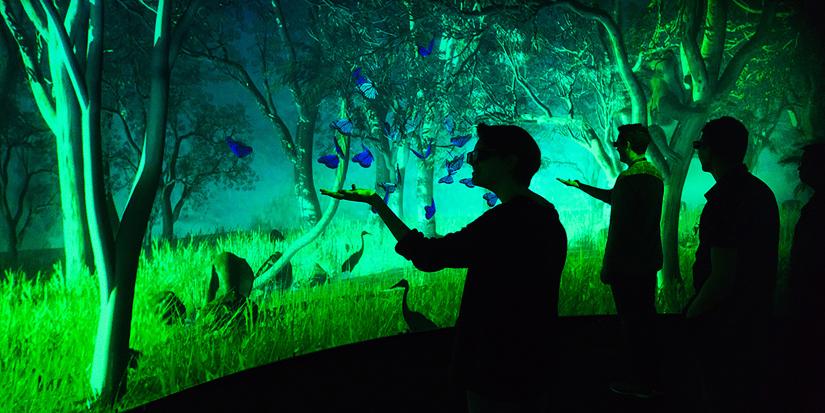
Research opportunities
The Academy is home to a thriving research culture. Our research portfolio spans a growing body of knowledge in the future of CGI, animation, interaction and visualisation. As a student in our practice-based PhD and masters degree research programs, you’ll make a meaningful contribution to this emerging field of enquiry.
We’re always seeking new research collaborations with artists, performers, creative coders and organisations. To discuss your research ideas or to find out more about research degrees, please contact the Academy.
How do you apply for the PhD program?
We are calling for expressions of interest from suitably qualified and experienced candidates to work on practice-based PhD research projects which explore innovative technologies and/or creative approaches to a range or combination of areas including (but not limited to):
- User/Audience experiences, engagement and narrative (particularly in relation to technologies such as augmented and virtual reality)
- Animation and interaction
- Novel uses of machine learning in the broad context of animation, visual effects, games and interaction
- Interaction design for professional CGI work
- New aesthetic and technical approaches to data visualisation
- Creative collaboration in the context of professional CGI work
- Real-time computer-generated visuals and sounds
- Creative coding & software development
The Academy Research team is a highly interdisciplinary team and welcomes applications from outstanding individuals with backgrounds in any academic discipline. We particularly encourage those with demonstrable experience innovating across disciplines to apply.
You will need to have completed:
- A UTS recognised master’s by research; or
- Bachelor’s degree with first or second class Honours (division 1); or
- An equivalent higher qualification; or
- Provide other evidence of professional experience that demonstrates your potential to pursue graduate research studies.
Applicants will need to develop a research proposal outlining their intended project and the methods they intend to use to realise it. You are strongly encouraged to discuss your project with the Research & Course Director, Andrew Johnston, prior to submitting an application.
To apply, please email your CV and a brief overview of your proposed project to the UTS ALA Research & Course Director, Prof. Andrew Johnston.
Meet the team
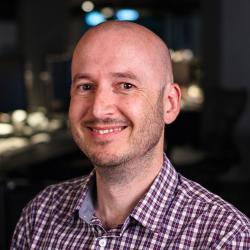
Andrew Johnston
Director of Research
Andrew Johnston is Professor at the University of Technology Sydney, where he works as the Research and Course Director of the UTS Animal Logic Academy. He is also the Co-Director of the new UTS Visualisation Institute.
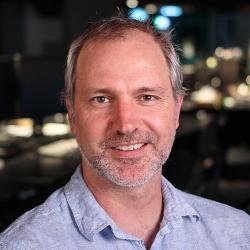
Andrew Bluff
Post Doctoral Research Fellow
Andrew is a researcher, XR creative, digital artist, sound designer and software engineer. His research includes realtime augmentation of live performance, creating immersive VR/AR playspaces, adding olfactory senses to VR and using machine learning for intuitive user interaction.
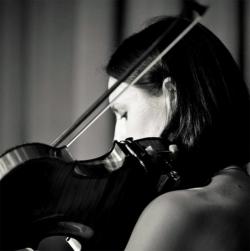
Anna Savery
PhD Candidate
Anna Savery is a versatile artist, skilled in violin, composition, improvisation, and music technology. She creates narrative-driven audio-visual works exploring themes like immigration, belonging and motherhood. Anna's research centres on developing a minimally invasive wireless audio-visual violin bow interface and analysing the process of its impact on creative work and live performance.
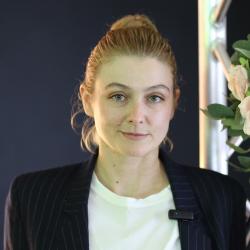
Georgia Banks
PhD Candidate
Georgia Banks makes performance art even when you think she doesn’t. She have been banned from Tinder, sued by the estate of Hannah Wilke, and awarded Miss Social Impact in a national beauty pageant. She would like to go viral, break a Guinness World Record, and be in an actual episode of Black Mirror instead of making her own. During her PhD Georgia will explore death and legacy in the digital age, asking can we really live forever, and why should we want to?
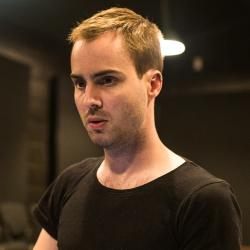
Nick Atkins
PhD Candidate
Nick is a creative that’s worked across screen and stage. His recent work, MESSAGE BANK, was presented at Sydney Festival and his writing has been shortlisted for the Rodney Seaborn and Patrick White playwriting awards. Nick's research is focused on enlivening real-time spatiotemporal data through digital theatre making.
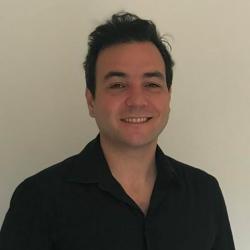
Nico Pietroni
PhD Candidate
Nico's research focuses on concepts and practical algorithms for the creation and manipulation of digital shape representation. His primary goal is to push the boundaries of current industrial production pipelines by exploiting the theoretical foundations in geometry processing. This includes mesh parametrisation, surface abstraction and global optimization applied to the entertainment industry, digital fabrication and architectural geometry.
Peter Herbert
PhD Candidate
Peter is a Program Convenor for the Screen Business Department at the Australian Film Television and Radio School. His research is a study of the effects of advances in technology in the screen media industries on internships, placement schemes and teaching practice. At the core of his research is a better understanding of the term of ‘industry readiness’.
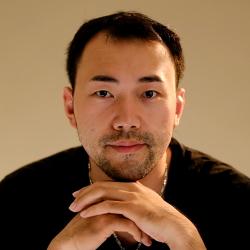
Xuguang Jia
PhD Candidate
Xuguang Jia is a 3D generalist who specializes in creating short films using Unreal Engine. His practice-based research is focused on exploring the virtual production pipeline, utilising a real-time rendering game engine specifically for independent studios.

Yunyu Ong
PhD Candidate
Yunyu is a multi-award winning singer-songwriter / storyteller / composer and sound designer. Her research focuses on mapping game quest structures onto recorded music, creating pieces that adapt to a listener’s position in space-time. Highlights of her recent work include a commissioned piece by Taikoz, and she is a selected artist in Ars Electronica in Linz, Austria. Her research is funded in conjunction with UTS as well as Dolby Australia.

